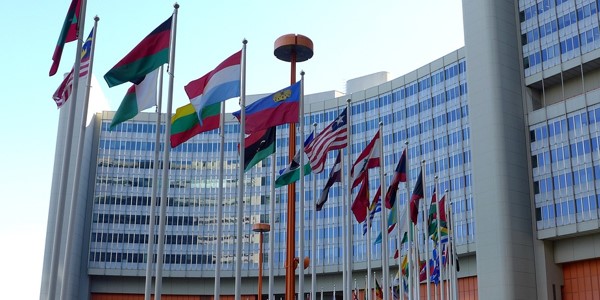Leveraging technology to stimulate entrepreneurship in the Colombian countryside
UN Commission on Narcotic Drugs (CND), 4th intersessional meeting
Vienna, 24 October 2018
Øystein Schjetne, Stiftelsen Golden Colombia
Honorable Chair, esteemed delegates, ladies and gentlemen.
Colombia is currently carrying out a giant project of alternative development. The implementation of the Colombian peace accord aims to eradicate the illicit economies and create the conditions for sound and sane economic and social development.
But the effort is facing enormous obstacles and is in danger of total collapse.
Resources for the crops substitution for farmers and productive projects for demobilized guerrillas are missing, infrastructure projects are delayed and land restitution is barely progressing. The coca fields on the other hand have more than tripled over the last four years. Forced displacement is up 112% from last year. Social leaders in charge of crops substitution and land restitution in their communities are being threatened and murdered. 340 have been killed since 2016.
These problems are not only due to the cocaine economy. We are faced with an economic and social system that has no desire to change. The system is controlled by a network of local political and economic elites that are well served by the current state of affairs. They represent a mix of illegal industries, informal economies, corruption and clientilism that is incompatible with the modernization of the countryside the agreement implies.
In the words of Robinson and Acemoglu, the authors of Why Nations Fail, Colombia has extractive rather than inclusive institutions. The extractive political and economic institutions are designed so that certain elites extract incomes and wealth from one subset of society to benefit a different subset. Inclusive institutions on the other hand would have allowed and encouraged participation by the great mass of people in economic activities.
New technologies and knowledge can bring about economic growth and prosperity through what Schumpeter called “creative destruction”. But societies like the Colombian is resistant to such changes, a “deep state” ferociously opposes the alternative development that the peace accord represents.
One of these extractive institutions is a precarious public educational system. As in so many countries in the world school attendance is rising but the pupils learn very little, in many cases almost nothing. One of the consequences is a population not qualified to participate in advanced economies, and, maybe worse, with a lack of consciousness that leaves them vulnerable to populist manipulation that in the age of social media will lead them even further into this trap of exclusion.
So what to do?
While the developed world is entering into the 4th industrial revolution, the rural society in a country like Colombia is still a pre-industrial one. We urgently need to bring the 3rd industrial revolution – the digital one – to the young generation in countries with large illegal economies. We need to ignite their desire to learn, teach them how to teach themselves in the absence of an adequate educational system.
It’s not a matter of introducing the technology as such, most already have smart phones and they use the same social media as their peers in industrialized countries. But they don’t comprehend that it can be of use beyond communication and entertainment.
The Golden Colombia Foundation works in two marginalized communities that have suffered much from drug violence, one from illicit crops and the other from drug trafficking. We offer a program in which youth, by extensive use of digital tools, will learn English, cooking and marketing.
They are further offered part-time work in weekends and vacations in our social businesses; related to our exports and marketing of dried fruit products and coffee, or our activities within agricultural and cultural tourism. This allows them to practice what they have learned, receive a job certificate for future employment or studies, and enable them to hopefully set up their own prosperous businesses in the future.
But maybe most important: They will receive a pay that will demonstrate to their peers that it is worthwhile to learn stuff. And they will experience the exhilarating joy of mastering new trades that they once believed were reserved for the upper class. And the staggering thought that they can teach themselves practically anything.
So in these societies that resist change, alternative development has to bring the new generations into the world of digitally enabled knowledge. The good news is that we don’t have to reach all the young people in these societies, we just need to make sure a critical number – the tipping point – succeeds for this culture of learning and self-development to take root.
Thank you.

